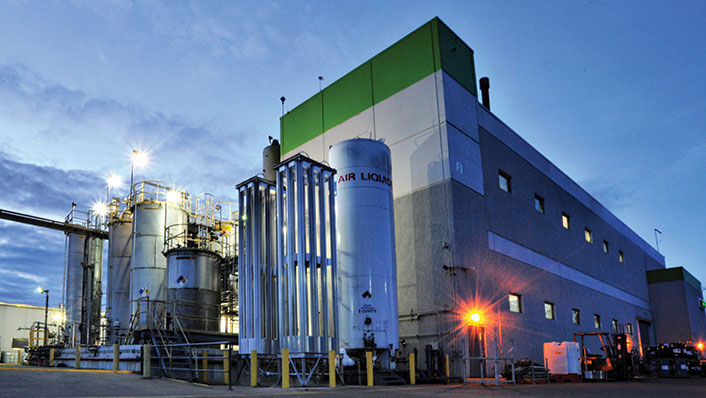Sustainable Innovation
Strong safety records, frequent monitoring, and commitments to ongoing improvement are keys

Sustainable manufacturing of fine chemicals requires the effective use of energy and other resources. Leaders at Grace’s Fine Chemical Manufacturing Services (Grace’s FCMS) know that sustainability impacts all parts of the business, from transporting raw materials to using electricity to run equipment and managing production waste appropriately.
Safety is sustainability
“Grace’s number one sustainability concern is maintaining a safe site,” says Scott Martin, general manager of Grace’s FCMS global business unit. “By doing that, we care for our people, our community, and the environment.”
Supporting a safe site includes instituting safeguards against emissions and manufacturing breakdowns that could affect a surrounding community—for example, having a robust safety plan for each site and ensuring regulatory compliance. Grace continually meets or exceeds US safety regulations.
Sites involved with producing fine chemicals operate with additional requirements to maintain quality. For example, Grace’s FCMS facility in South Haven, Michigan complies with current good manufacturing practices regulations of the US Food and Drug Administration. Grace’s FCMS site in Tyrone, Pennsylvania, meets U.S., European, and other jurisdictional requirements for regulatory starting materials and intermediates.
Grace’s number one sustainability concern is maintaining a safe site. By doing that, we care for our people, our community, and the environment.
General Manager, FCMS Global
Sustainability fundamental to innovation
Chemical makers are always working to decrease their environmental footprint. At Grace’s FCMS, sustainability is part of all phases of manufacturing. Teams of scientists and engineers develop processes that conserve energy and raw materials. Recyclable materials and packaging also help reduce waste.
Continuous monitoring and improvement
Grace’s FCMS is committed to a culture of continuous improvement at our two manufacturing sites. Formalized plans include monitoring and improving processes on an ongoing basis. “We’re also committed to measuring reductions in our environmental footprint each year,” Martin says.
Grace’s FCMS is an active member of the American Chemistry Council, a trade association that requires all members to participate in its safety and sustainability program. Whether working with peers in the industry or collaborating with customers, Grace’s FCMS prioritizes processes, monitoring, and reporting on environmental health and safety for its employees, the communities in which the company operates, and the environment as a whole.